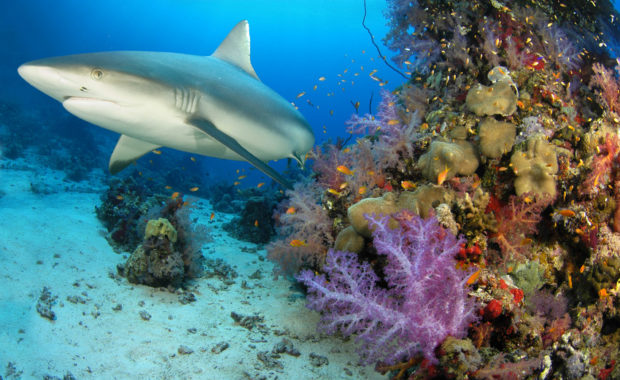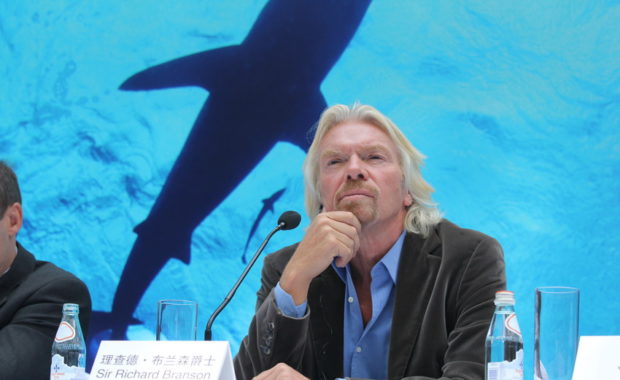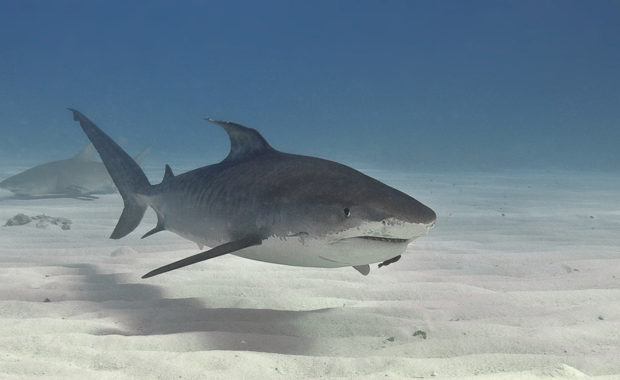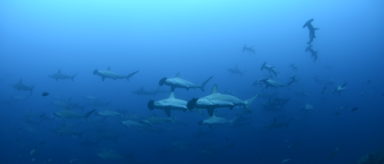Fins from up to 73 million sharks are used in shark fin soup every year
As apex predators, sharks are integral to the health of the ocean ecosystem, and their disappearance can cause the ecosystem to collapse, affecting fisheries, coral reefs, local communities, and coastal economies. Yet sharks are severely threatened by overfishing and by habitat degradation, which is destroying their prey base.
At the same time, humans kill around 80 million sharks in our oceans every year, to satisfy demand for shark fins for use in soup, and increasingly to satisfy rising demand for shark meat and other products such as cartilage and oil.
There are more than 500 different species of shark in our oceans: more than one-third of those species are now threatened with extinction, according to the International Union for the Conservation of Nature (IUCN).
After successfully campaigning to reduce shark fin consumption in China, WildAid has turned to Thailand, an important emerging market for shark fin soup, and is also working to secure further restrictions to the global shark fin trade, and to enhance protection of sharks in marine protected areas.
- 43%
of shark species are now at risk of extinction - 80%
Shark fin consumption fell by more than 80% in China from 2011-2016. - 34%
Drop in frequency of consumption of shark fin in Thailand between 2017 and 2023.
Making an impact
WildAid protects sharks on two fronts: on one side, reducing demand for shark fin soup and other shark-related products, and on the other, strengthening current protections for sharks in priority marine areas, leveraging both area-based and species-specific conservation measures.
When WildAid began its shark fin campaign in 2006, awareness levels were low: 75 percent of Chinese people were unaware that shark fin soup was made from sharks (the dish translates to “fish wing soup” in Mandarin), and nearly 1 in 5 believed that shark fins grew back. After a decade of campaigning, our surveys showed dramatic changes in attitudes and awareness, and sharp declines in prices in sales.
In October 2016, China’s CITES Management Authority announced in October 2016 that shark fin consumption in China had fallen by more than 80 percent, citing data from the China Seafood Logistic and Processing Association on imports, wholesale sales and prices.
In addition to changing consumer attitudes and behaviors across East Asia, we have been instrumental in convincing businesses not to serve shark fin soup. The Global Shark Pledge has been adopted by dozens of airlines, shipping companies, restaurants and hotel chains.
In Thailand, WildAid has launched the ‘Chalong Mai Chalarm’ / ‘Celebrate with #NoSharkFin’ campaign in 2018, enlisting popular celebrities to lend their voices for sharks, including actor ‘Pong’ Nawat Kulrattanarak and Miss Universe Thailand 2017 Maria Poonlertlarp, both of whom are passionate divers, activists, and WildAid ambassadors.
The campaign is already having an impact. Shark fin consumption in Thailand has declined by 34% over the past six years, equivalent to an estimated 8.1 million fewer servings of shark fin per year, according to a Wild Aid 2023 survey, independently conducted by Rapid Asia.
Yet enormous challenges remain. A DNA study funded by WildAid found that 62% of the identified shark fins traded in Thailand belonged to sharks at risk of extinction. Meanwhile, more than 56% of urban Thais still express an intention to consume shark fin in the future – commonly eating it in restaurants with families and friends, and at weddings and family reunions.
The global pressure on sharks from overfishing of their prey base and direct killing for their fins or meat makes it more important than ever to strengthen the enforcement of marine protected areas (MPAs) and sustainable fisheries. This is a key focus of WildAid’s Marine program, which is working hard to make the promise of marine protection real.
From the Galapagos Marine Reserve to Misool Marine Reseve in Raja Ampat, Indonesia, WildAid’s Marine program helps to provide effective protection for scores of species of sharks.
We urge the world to unite in a campaign to protect sharks, by building capacity to enforce existing protections for sharks while also pushing for stronger, shark-specific management measures and additional area-based protections like marine protected areas.














